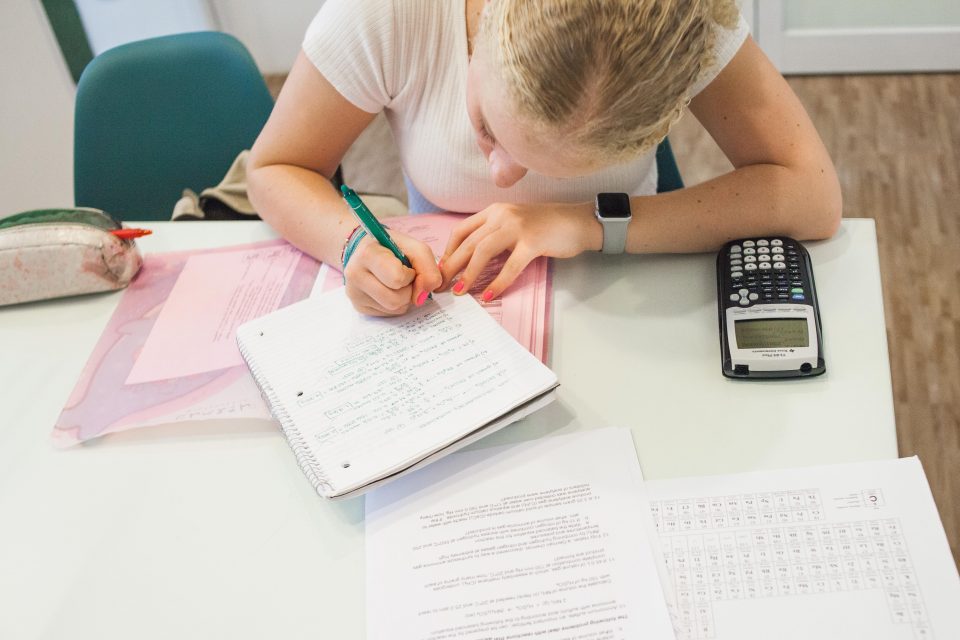And how professional tutoring can support students to do so.
It’s not a secret: Human beings of any age learn things more easily if the subject they are looking into sparks their interest. During the first years of life, human beings are eager to learn basically anything.
Small wonder: We belong to those living beings who can hardly do anything independently when we are born. Fast learning is a survival strategy for babies and young children. In our first years, we do have an innate curiosity for anything new. Small kids are usually very eager to explore the world and soak up new things and learn new habits. Their natural urge to learn ensures that they learn to walk, talk, and eat by themselves within their first years.
Unfortunately, we tend to lose our innate thirst for knowledge when we grow older and as soon as we have acquired the most basic skills. In addition, from a certain age, students can no longer concentrate only on things they enjoy learning. They need to follow the curriculum and gain knowledge in any aspect of the curriculum. One reason why we at A for Effort decided to focus our tutoring services on Math and Science is that these two school subjects are amongst those in which students might lose their desire to learn as the material gets more complicated. However, many students change their perspective towards Math and Science once they start a tutoring program. When students begin to understand the concepts and are able to keep up or even excel, they actually start to enjoy those subjects, also at school.
Stress and Pressure Reduces our Natural Urge to Learn
Students learn Math and Science best when they approach the subject as something they enjoy. Speed, pressure, timed testing and blind memorisation pose high hurdles. When students are stressed, such as when they are solving math questions under pressured time, the working memory becomes blocked and the students cannot as easily recall the math facts they had previously studied. This can lead to frustration and to the fact that a child loses interest. Lack of desire to learn often leads to a vicious circle as especially in Mathematics build on each other. If a student misses out on one thing, it gets difficult to catch up and get back on track.
That said, memory blockages caused by stress also occur among students who usually achieve high results which don’t make things any less frustrating.
How Tutors at A for Effort Make Math and Science Enjoyable
In our opinion, every student, regardless of their level, should above all enjoy Math and Science and have fun learning them. It is important to us that our students do not perceive the tutoring sessions as an additional burden after a long school day. The one-on-one or small group sessions are there to support them according to their individual needs. During a tutoring session, students can learn according to their own speed by using the strategies that help them individually. Our tutors are not only there to impart material, but also to provide learning strategies and to spark the students’ interest in what they are learning. We have put together some of the teaching methods our tutors use.
1. Provide Hands-on Experiences
Especially for younger students, it helps if they can relate theoretical information and input with the real world. Our tutors always aim to not only explain things but to also make the content tangible; for example, via experiments or games.
2. Make Learning Fun
Kids memorise much better if they learn in a playful way. Our tutors incorporate number talks, addition and multiplication activities, and math cards into each session as well as interactive notebooks.
3. Diagnose the Weakness
Every student is different and so are their areas for improvement. If a tutor is able to determine the individual areas for improvement of a student, he or she can give the best support. Before we focus on a certain topic, our tutors always make sure that the student already masters the pre-required topics to succeed.
4. Challenge Every Level
We will always challenge our students – no matter how good they are in comparison with their peers. So, for example, if an 8th grader is ahead of his or her class, we will challenge them with tasks for a 9th or 10th grader to keep his or her ambition high. This also applies to individual topics the student might excel in.
5. Repetition is the Key
Why are we all capable of addition and subtraction? Because we have to use it daily for everyday’s problems. We unconsciously have repeated our addition and subtraction skills. What if we repeated advanced mathematical topics over and over again? That’s why our tutors spend a few minutes of each session reviewing things a student has already learned and making sure that he or she is safe with the problem-solving method before moving on.
6. Connect to Real-World Situations
For many students, Mathematics is very abstract. And, come on, when have you used probability, exponential or calculus in your real life the last time? Well, actually you do, you just don’t realise it. We always try to find hands-on examples for mathematical methods, like for example the COVID-19 line graph, a topic that everybody is currently relevant to. We ask students to interpret all-important keys and predict the trend of the graph. When we talk about the system of equations, we can address the equilibrium point and find out why the costs for exemplar for hand sanitiser was so high at the beginning of the pandemic.
Determine Individual Learning Styles
Besides applying the right teaching method, it is also important to determine a student’s individual learning style and apply suitable strategies. Not every student learns the same way. Besides conveying knowledge and explaining matters, our tutors analyse which way a student learns best. In general, there are three main learning styles: visual, auditory and kinesthetic.
A visual learner learns by reading or seeing pictures. He or she understands and remembers things by sight. Visual learners can picture what they are learning in their head, and they learn best by using primarily visual methods. Visual learners need to see what they are learning.
Auditory learners learn by hearing and listening. They understand and remember things they have heard. They store information by the way it sounds, and they have an easier time understanding spoken instructions than written ones. Visual learners often learn by reading out loud because they have to hear it or speak it in order to know it.
Kinesthetic or tactile learners learn mainly by touching and doing. They understand and remember things through physical movement. They are “hands-on” learners who prefer to touch, move, build, or draw what they learn, and they tend to learn better when some type of physical activity is involved.
Once a student is aware of how she or he learns best, they can apply this knowledge when they are learning by themselves.
Besides that, the tutors at A for Effort are constantly developing their teaching skills. We keep ourselves updated and informed about new insights on knowledge transfer and teaching skills and we apply them in our tutoring sessions.




